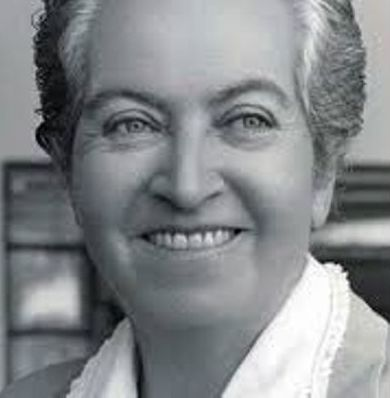“Things”
From Tala (1938)
By Gabriela Mistral
Translated by Anna Deeny Morales
For Fritz (Federico) H. Andersen, my stepfather.
(1942–2020)
Things
For Max Daireaux
1
I love the things I never had
with the others I have no more:
I touch silent water,
on my feet in fields so cold,
that with no wind shivered
in the orchard that was my own.
I look at it as I looked before;
an odd thought to me then shown,
and I play, so slow, with that water
as with fish or what’s unknown.
2
I think on threshold where I left
carefree steps no longer walked,
and at the threshold I see a sore
filled with silence and with moss.
3
For myself I search a verse I’ve lost,
one told to me when I was seven.
She was a woman kneading bread
and I see her mouth so blessed.
4
An aroma comes undone in wafts;
what delight is mine if I can sense it;
so slender it’s not an aroma,
but of almond trees the scent.
This turns my senses into children;
I search its name and can’t make it out,
and I smell the air and places
in search of almond trees I never found . . .
5
A river sounds ceaseless near.
For forty years I’ve felt it.
It is the singsong of my blood
or a rhythm I was gifted.
Oh Elqui River of my childhood
that I lean on and wade through.
I never lose this; chest to chest,
like two children, we cleave too.
6
When I dream the Cordillera,
I walk my way through gorges,
and hear them, restless, as I go,
a whistle almost oath.
7
I see then the Pacific at its end
my archipelago bruised and black,
and of one island in me what’s left
is a sharp stench of kingfishers dead . . .
8
A back, a back sweet and solemn,
closes this dream that is mine.
It is at the end of my path
and I rest when I arrive.
A dead tree trunk or my father,
the back ashen and blurred.
I don’t question or disturb him.
I lie down there, hush, and slumber.
9
I love a stone from Oaxaca
or Guatemala, that I near,
just as my face red and still,
and its cleft gives a breath of air.
As I fall asleep it’s left unclothed;
I don’t know why I turn it around.
And maybe I’ve never held it
and the sepulcher I see my own . . .
COSAS
A Max Daireaux
1
Amo las cosas que nunca tuve
con las otras que ya no tengo:
Yo toco un agua silenciosa,
parada en pastos friolentos,
que sin un viento tiritaba
en el huerto que era mi huerto.
La miro como la miraba;
me da un extraño pensamiento,
y juego, lenta, con esa agua
como con pez o con misterio.
2
Pienso en umbral donde dejé
pasos alegres que ya no llevo,
y en el umbral veo una llaga
llena de musgo y de silencio.
3
Me busco un verso que he perdido,
que a los siete años me dijeron.
Fue una mujer haciendo el pan
y yo su santa boca veo.
4
Viene un aroma roto en ráfagas;
soy muy dichosa si lo siento;
de tan delgado no es aroma,
siendo el olor de los almendros.
Me vuelve niños los sentidos;
le busco un nombre y no lo acierto,
y huelo el aire y los lugares
buscando almendros que no encuentro . . .
5
Un río suena siempre cerca.
Ha cuarenta años que lo siento.
Es canturía de mi sangre
o bien un ritmo que me dieron.
O el río Elqui de mi infancia
que me repecho y me vadeo.
Nunca lo pierdo; pecho a pecho,
como dos niños, nos tenemos.
6
Cuando sueño la Cordillera,
camino por desfiladeros,
y voy oyéndoles, sin tregua,
un silbo casi juramento.
7
Veo al remate del Pacífico
amoratado mi archipiélago,
y de una isla me ha quedado
un olor acre de alción muerto . . .
8
Un dorso, un dorso grave y dulce,
remata el sueño que yo sueño.
Es al final de mi camino
y me descanso cuando llego.
Es tronco muerto o es mi padre,
el vago dorso ceniciento.
Yo no pregunto, no lo turbo.
Me tiendo junto, callo y duermo.
9
Amo una piedra de Oaxaca
o Guatemala, a que me acerco,
roja y fija como mi cara
y cuya grieta da un aliento.
Al dormirme queda desnuda;
no sé por qué yo la volteo.
Y tal vez nunca la he tenido
y es mi sepulcro lo que veo . . .
This week’s Poesía en acción feature also includes:
An interview with Anna Deeny Morales

Née Lucila Godoy Alcayaga, Gabriela Mistral was born in 1889, in the Elqui Valley of Northern Chile. She was a prolific poet and essayist; a public intellectual; an expert in children’s education and human rights; and a diplomat. Her volumes of poetry include Desolación (1922), Ternura (1924, 1945), Tala (1938, 1947), and Lagar (1954). Posthumous works include Poemas de Chile (1967) and Lagar II (1991). Mistral dedicated the proceeds of Tala to the thousands of children orphaned as a result of the Spanish Civil War. Mistral was the first Latin American and the fifth woman to receive the Nobel Prize in Literature in 1945. She passed away in Hempstead, NY, in 1957, accompanied by her partner, Doris Dana.

Anna Deeny Morales is a translator of poetry, dramatist, and literary critic. An NEA fellow for the translation of Tala by Gabriela Mistral, she has translated works by Raúl Zurita, Alejandra Pizarnik, and Mercedes Roffé, among others. Her new work in opera, ¡ZAVALA-ZAVALA!, commissioned by UNC-Charlotte composer Brian Arreola, will debut in 2022; and La Paloma at the Wall, commissioned by the In Series, debuted at Gala Hispanic Theater in 2019. She received a PhD from UC-Berkeley and teaches at Georgetown University. Her book, Other Solitudes: Essays on Consciousness and Poetry, is forthcoming in 2022.
Poesía en acción is an Action Books blog feature for Latin American and Spanish poetry in translation and the translator micro-interview series. It was created by Katherine M. Hedeen and is currently curated and edited by Olivia Lott with web editing by Paul Cunningham.
